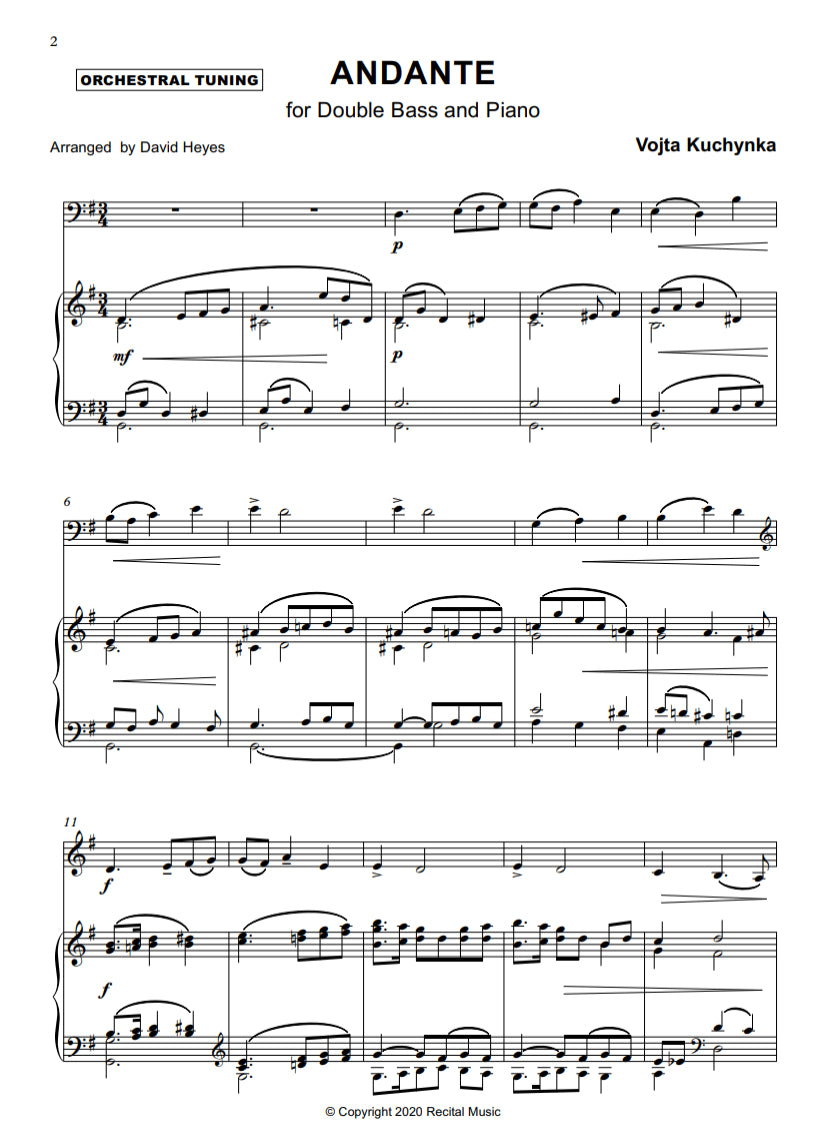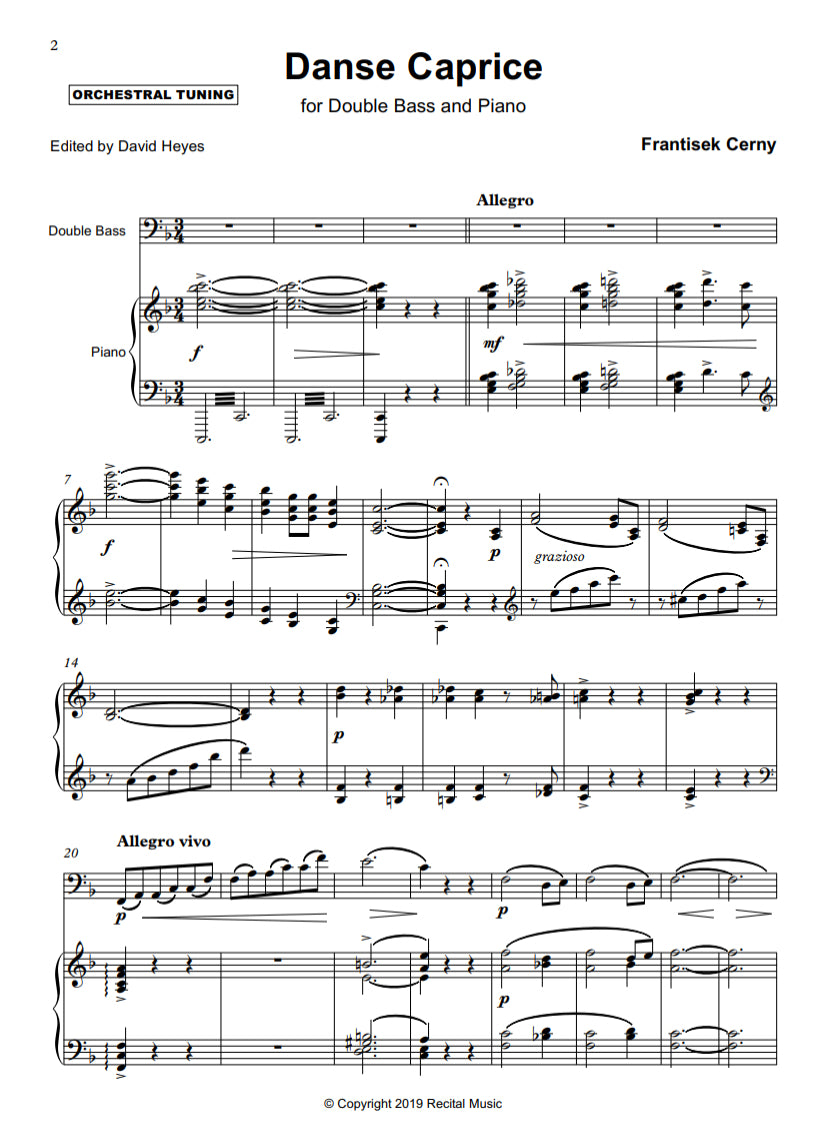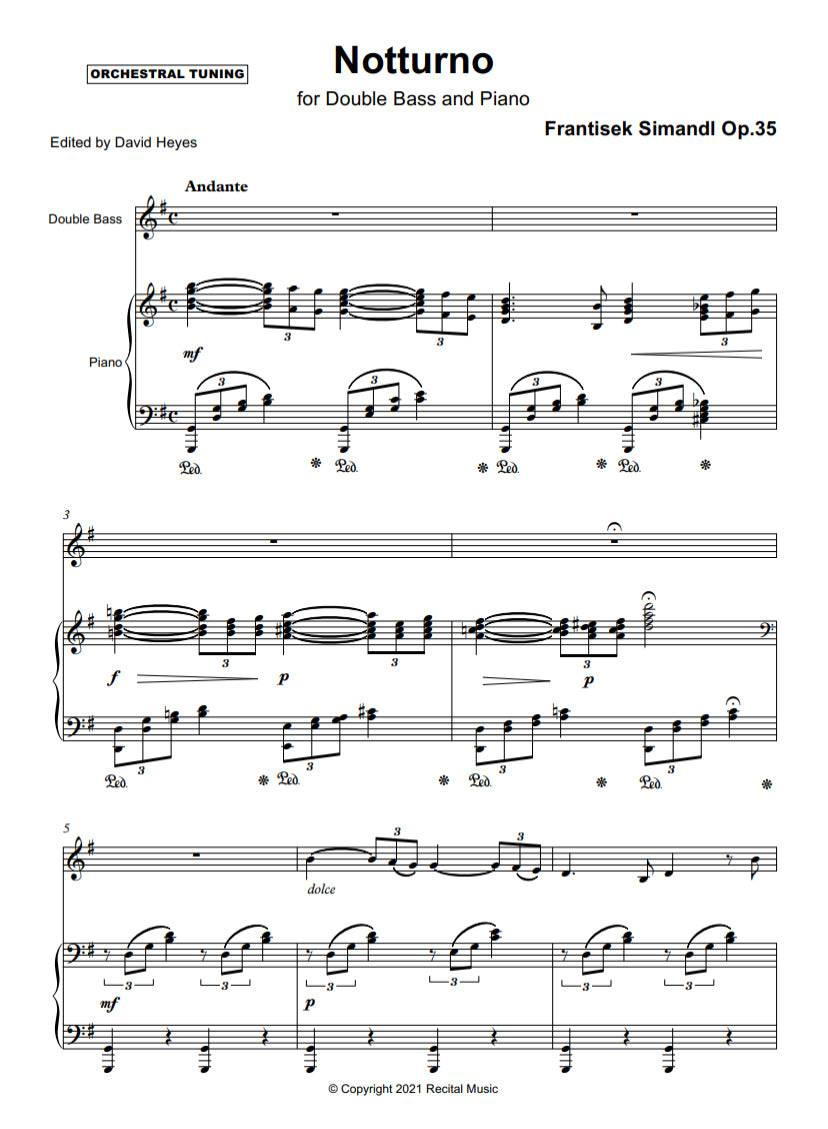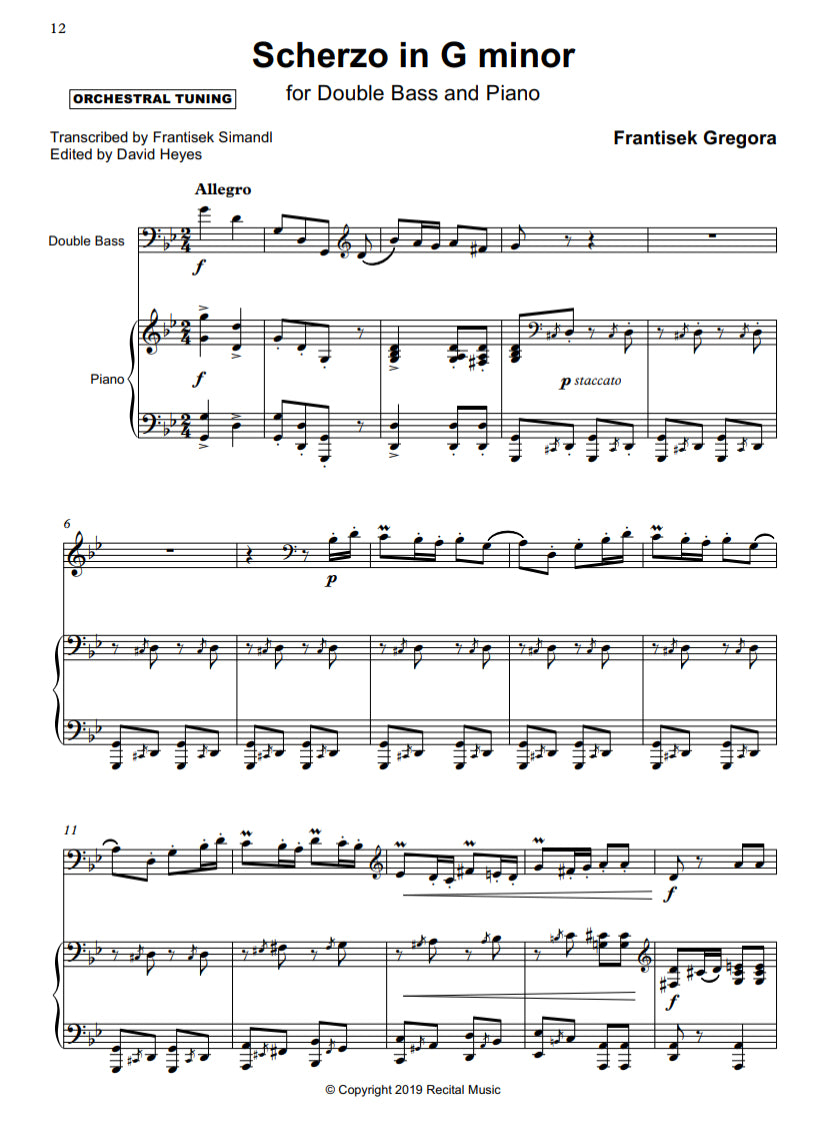David Heyes
The Bohemian Bass Book 1 (edited by David Heyes) for double bass & piano
The Bohemian Bass Book 1 (edited by David Heyes) for double bass & piano
Couldn't load pickup availability
About the Collection
The Bohemian Bass Book 1 brings together four impressive solo works for double bass and piano by leading members of the late 19th-century Czech School of Double Bass. Aimed at the intermediate-advanced bassist, each piece explores the entire register of the instrument in music in a lyrical and expressive style, emphasizing the cantabile and sonorous qualities of the double bass.
1. Danse Caprice is in one extended movement and emphasizes the lyrical, and cantabile qualities of the double bass throughout its solo register. The style is late- romantic and accessible, probably written at the end of the 19th-century, with a strongly independent and supportive piano accompaniment. Černý’s music is always beautifully written for the double bass and the title echoes the dance-like style, in waltz time, with capricious energy and effervescence throughout.
František Černý (1861-1940) studied composition with Antonín Dvořák and much of his music reflects the salon style of the late 19th-century. All his works are melodic and appealing, combining the late-Romantic idiom of Dvořák and Brahms, with Czech lyricism and influences, and he makes full use of the solo capabilities of the double bass.
2. Scherzo in A minor was newly revised by David Heyes in 2019, the bicentenary of the birth of František Gregora, with the solo double bass part transposed into G minor and accompaniments provided for both tunings. The music is rhythmic and vibrant, with a strong momentum throughout contrasting a more lyrical middle section marked Cantabile, ending with an energetic flourish which is exciting and technically challenging. Full of character and invention, this new edition is a great addition to Recital Music’s ongoing Czech series of publications.
František Gregora (1819-1887) was a prolific composer and was born in Netolice, Bohemia on 9 January 1819 and in 1844 he entered the Vienna Conservatoire, where he studied double bass with Antonín Slama and composition with Gottfried Preyer. After graduation Gregora returned to Bohemia, settling in Písek, where he lived until his death on 27 January 1887. He became an important local musical figure as organist, choir master and music teacher, and was soon nicknamed 'the travelling bass virtuoso' - having given many solo recitals in the area.
3. Andante is originally for violin and piano and is a beautifully lyrical and characteristic single-movement work, composed in the late-romantic style typical of the late 19th and early 20th-century. It is dedicated to Dr. Ferdinand Pečírka (1859-1922), a leading doctor and dermatologist of his day, who was also a great lover of music and, in the mid-1890s co-founded the Czech Chamber Music Association. The opening bars of the piece have a strong resemblance to the introduction of 'Desire' for double bass and piano, followed by long and sinuous melodies contrasting an inventive, evocative, and supportive piano accompaniment.
Vojta Kuchynka (1871-1942) gave solo recitals until the day of his retirement when he celebrated his 600th recital and was known as 'the Kubelík of the Double Bass', after the leading Czech violinist of the day Jan Kubelík (1880-1940). He was praised for his perfect technique, impressive harmonic work, interpretation, and tasteful transcriptions of classical works. Most of his recitals were in Bohemia or Moravia and one concert in Prague, reviewed in The Strad by Miss Windust, stated: "Alongside the brilliant performances of František Ondříček and Karel Hoffmann, it was the admirable virtuosity of Vojta Kuchynka that made the deepest impression on me." He made the first Czech double bass recording for Parlophon, and Prague Radio broadcast recitals of his music to celebrate his 65th and 70th birthdays.
4. Notturno Op.35 is a charming and lyrical salon work for the advanced bassist. It uses much of the solo register of the instrument and has been neglected and out of print for far too long. Its blending of tender and lyrical melody contrasts passages of more dramatic intensity, producing a work that would be ideal for any audience and suitable for any bassist who has a confident knowledge of thumb position.
František [Franz] Simandl (1840-1912) was one of the leading bassists and teachers of his generation and studied double bass at the Prague Conservatoire with Josef Hrabě. He became a member of the Vienna Philharmonic and taught at the Vienna Conservatoire, teaching bassists who exported the Czech double bass school to every corner of the world. Although Simandl's music has fallen from favor in recent times, he was a pioneer of his day and his New Method for Double Bass helped succeeding generations to build and develop the standard of double bass playing.
The Bohemian Bass Book 1 includes accompaniments for both solo and orchestral tuning.











